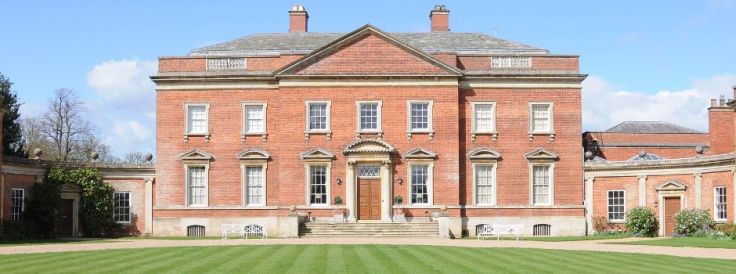
The prospect of selecting a master’s dissertation subject can be a daunting one, particularly if, like me, you’ve had a 22-year hiatus since your last foray into higher education.
I must admit I was in something of a quandary; it had been so long since I had undertaken any form of historical study that I had no real area of specialism or interest. All I had to go on was my recent experience of the first two modules of my master’s course that I started at the University of Northampton last October MA History.
One of those modules, From Privilege to Pressure: English Landed Society 1850-1950, surprisingly for me, sparked an interest in an area of history that I have never studied, or had even considered studying prior to undertaking the master’s. I say surprisingly, only because as an undergraduate, my preferences had been for modern American history.

This new-found interest meant, however, that I at least had a vague idea of the area that I wished to explore further; the next question, though was more specifically, what? I had no idea what, but luckily my module tutor had some suggestions and with his guidance I decided that it would be the study of aristocratic emotions, using personal correspondence of aristocratic and gentry families from my home county of Northamptonshire.
Once I had decided upon my specific area of study, the next thing I had to do was find out who were the best families to use and which had the best collections of correspondence, if in fact they had any.
This is where Northamptonshire Records Office proved to be very helpful Northamptonshire Archives. They were able to supply me with the names of those families whose collections they considered could be relevant and useful to me.
So, armed with a handful of family names, I embarked on my first attempt at sourcing archival material that I would hopefully use for my dissertation.

Despite my excitement (yes, I was quite excited at the prospect of starting my research) my first attempt was a complete disaster. I had no idea how the collections were catalogued, I couldn’t fathom out what the documents were, let alone work out the reference number so I could ask to view something!
I now know that they also have a catalogue online, which I find much easier to decipher.

I had gone in, unprepared and with unrealistic expectations with what I thought I would achieve on this first visit – It is no coincidence that History undergraduates at University of Northampton get the opportunity to spend time at the archives during their course, not only is it interesting but it gives them the chance to gain experience and the skills set needed to undertake effective research – both of which I clearly lacked.
After three hours of sheer panic and, by now, on the verge of tears I left with only a growing feeling of despondency that perhaps this wasn’t the subject for me.
Luckily, this didn’t last too long as my tutor contacted me on the same day to see how I had fared – and after I had explained, he promptly assured me that it can often be a frustrating process and not to be disheartened.

So, after putting my panic on hold I searched the Northants Record Office website with one of the names that they had given me, and as if by magic a list of archive references appeared (Why hadn’t I done this first?).
Northants Record Office very helpfully allow you to order up to 8 document references in advance so that they are ready for you when you arrive. I was somewhat overambitious with my first lot of pre-ordering…who knew that 8 document references meant at least 5 boxes of documents?

So, my second visit proved way more fruitful than the first, I got to see what I was there to see, some 19th century letters written by members of a Northamptonshire landed family; I was absolutely thrilled.
Then the hard work actually started. The letters themselves are not easy to read, it can take a while to untangle some of the phrases and the handwriting at times is illegible.
Even having the documents in front of me, I still didn’t know the best method of dealing with them. Should I photograph them? How would they photograph? Should I just take notes?
Again, with the guidance of my tutor (who is clearly very patient) I was advised to photograph them – which I have now done on my three subsequent visits.
So, I now have my own, albeit currently very small, collection of letters to use (the downloading, saving and referencing of which take way longer than you think) and whilst I still have a lot more work to do, I have made a start, my confidence is growing and I am loving it!
Ruth Barton, MA History, University of Northampton
